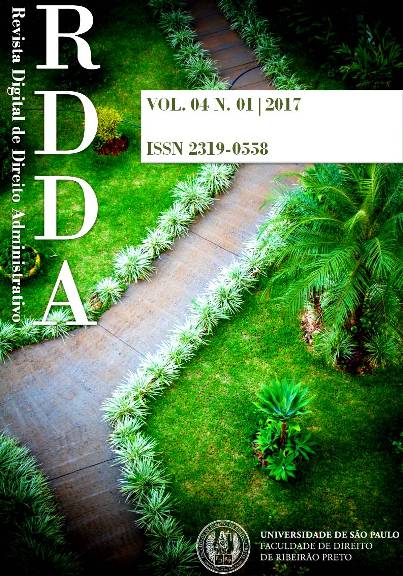The Brazilian Civil Society Organizations Act in the light of the Global Administrative Law
DOI:
https://doi.org/10.11606/issn.2319-0558.v4i1p92-111Keywords:
Third Sector, Civil Society, Law 13.019/2014Abstract
Any democratic system that intends to be minimally participative must have several different players in its decisory procedure, not only state actors. The Third Sector is probably the most proficuous segment for the surgiment of non-state political actors, well capable to influence the public choices. Nonetheless, such actors do not limit themselves to the boundaries of their original states. There is currently great exchange between transnational actors. In the Brazilian context, the Third Sector is the most importat segment for the so called organized civil society. Law n. 13.019/2014 seeks to establish general norms for the organizations of civil society. This paper examines the activities of the organized civil societies in a transnational context, taking into account the studies from the Global Administrative Law project in order to understand how the relationshiop between the new law and the current international scenario on what touches the way in which the Third Sector is treated in a trasnational level.Downloads
Download data is not yet available.
Downloads
Published
2017-01-26
Issue
Section
ARTIGOS CIENTÍFICOS
License
Autores que publicam nesta revista concordam com os seguintes termos:
- Autores mantêm os direitos autorais e concedem à RDDA o direito de primeira publicação, com o trabalho simultaneamente licenciado sob a Creative Commons Attribution-NonCommercial-ShareAlike 4.0 International License. que permite o compartilhamento do trabalho com reconhecimento da autoria e publicação inicial nesta revista.
- Autores têm autorização para assumir contratos adicionais separadamente, para distribuição não-exclusiva da versão do trabalho publicada nesta revista (ex.: publicar em repositório institucional ou como capítulo de livro), com reconhecimento de autoria e publicação inicial nesta revista (referência à RDDA).
- Autores têm permissão e são estimulados a publicar e distribuir seu trabalho online (ex.: em repositórios institucionais ou na sua página pessoal) a qualquer ponto antes ou durante o processo editorial, já que isso pode gerar alterações produtivas, bem como aumentar o impacto e a citação do trabalho publicado (Veja O Efeito do Acesso Livre).
How to Cite
The Brazilian Civil Society Organizations Act in the light of the Global Administrative Law. (2017). Revista Digital De Direito Administrativo, 4(1), 92-111. https://doi.org/10.11606/issn.2319-0558.v4i1p92-111


